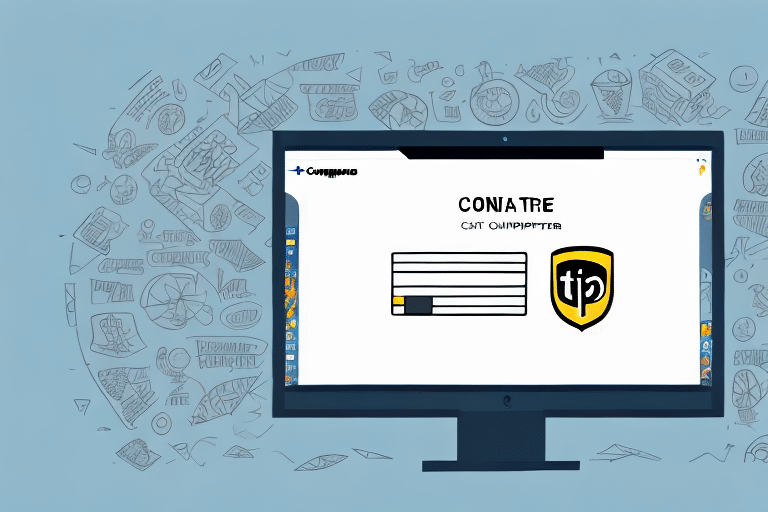The Evolution of FedEx's Name
When considering the giants of the shipping and delivery industry, FedEx stands out as a household name synonymous with speed and reliability. However, FedEx wasn't always known by this name. Originally founded in 1971 as Federal Express, the company underwent a significant rebranding in 1994 to become FedEx. This change was driven by the need for a more concise and memorable name that could better represent the company's expanding range of services beyond overnight shipping.
The nickname "FedEx" emerged organically from the company's air division, FedEx Express, and eventually gained widespread acceptance among both employees and customers. This seamless transition not only simplified the brand but also reinforced its commitment to efficiency and innovation. Today, FedEx offers a diverse array of services, including ground shipping, freight services, and comprehensive logistics solutions, solidifying its position as a leader in the global shipping industry.
FedEx's Founding Story
FedEx was the brainchild of Frederick W. Smith, who founded the company in 1971 with the innovative idea of specializing in overnight shipping. At a time when such a business model was unprecedented, Smith's vision was to revolutionize the shipping industry by ensuring that packages could be delivered across the country within a single night. Starting with just 14 small planes and a handful of dedicated employees, FedEx quickly grew into a powerhouse in the shipping sector.
Over the decades, FedEx has continuously expanded its services, embracing advancements in technology and infrastructure. With a global network that spans over 220 countries and territories, FedEx plays a crucial role in the international economy, facilitating seamless connections between businesses and consumers worldwide. Despite facing fierce competition and various challenges, FedEx has remained steadfast in its mission to provide speed, reliability, and exceptional customer service.
The Importance of Naming in Branding
A company's name is a cornerstone of its branding strategy, influencing customer perception and market positioning. The transition from Federal Express to FedEx exemplifies how a well-chosen name can enhance brand recall and expand a company's identity. A shorter, catchier name like FedEx is not only easier to remember but also more adaptable to a broader range of services, facilitating brand growth.
Beyond memorability, a name should encapsulate a company's values and mission. For instance, the name FedEx reflects the company's dedication to efficiency and forward momentum, qualities that are essential in the shipping and logistics industry. A strong brand name fosters customer loyalty and creates a lasting impression, ensuring that the company stands out in a crowded marketplace.
The Meaning Behind the FedEx Logo
The FedEx logo is renowned for its simplicity and hidden symbolism. Featuring a bold purple and orange color scheme, the logo includes a subtle arrow formed between the letters "E" and "X," representing speed, precision, and forward motion. This clever design element underscores FedEx's commitment to efficient and reliable delivery services.
In 1994, alongside the name change, FedEx also redesigned its logo to introduce a more modern and approachable look. The use of lowercase letters and brighter colors enhanced the logo's visibility and appeal, reinforcing FedEx's brand identity as a leader in the shipping and logistics industry. The logo's design not only serves as a visual identifier but also communicates the company's core values at a glance.
A Look at FedEx's Global Presence
FedEx boasts an extensive global footprint, operating in over 220 countries and territories. The company's vast network includes more than 650 aircraft and over 180,000 vehicles, enabling it to handle approximately 15 million shipments daily. This expansive infrastructure allows FedEx to offer unparalleled delivery speed and reliability on a worldwide scale.
Strategic acquisitions and partnerships have been pivotal in expanding FedEx's global reach. Notable acquisitions include TNT Express, which enhanced FedEx's presence in Europe, and GENCO, bolstering its ground shipping capabilities in the United States. Additionally, collaborations with retailers like Walgreens and Dollar General provide customers with convenient package pickup and drop-off locations, further integrating FedEx into the daily lives of consumers.
FedEx is also committed to sustainability, aiming to achieve carbon-neutral operations by 2040. Investments in alternative fuels, electric vehicles, and sustainable technologies demonstrate the company's dedication to reducing its environmental impact. Initiatives such as the "Reduce, Replace, Revolutionize" program focus on eliminating single-use plastics and promoting recycling, aligning FedEx's operations with global sustainability goals.
How FedEx Revolutionized Shipping and Delivery
FedEx has fundamentally transformed the shipping and delivery landscape through its unwavering focus on speed, reliability, and innovation. By establishing overnight shipping as a standard expectation, FedEx set new benchmarks for the industry, compelling competitors to enhance their service offerings. The integration of advanced technology and data analytics has streamlined operations, resulting in increased efficiency and accuracy in package handling.
- Extensive Distribution Network: FedEx's strategically located distribution centers and transportation hubs ensure swift and efficient package movement.
- Investment in Technology: Cutting-edge tracking systems and automated sorting facilities enhance operational efficiency.
- Innovative Delivery Methods: Exploration of autonomous vehicles and drones aims to further reduce delivery times and costs.
- Exceptional Customer Service: 24/7 customer support and real-time tracking tools build trust and foster customer loyalty.
These efforts have cemented FedEx's reputation as a dependable partner for businesses and individuals alike, driving continuous growth and maintaining its leadership position in the industry.
FedEx's Impact on E-Commerce
The exponential growth of e-commerce has reshaped consumer behavior and created new challenges for the shipping industry. FedEx has adeptly navigated these changes, providing essential infrastructure and services that support the thriving online marketplace. The company's investment in technology and logistics has enabled it to meet the demands of high-volume, rapid deliveries characteristic of e-commerce transactions.
Key contributions of FedEx to the e-commerce sector include:
- Automated Sorting Systems: Enhancing the speed and accuracy of package processing.
- Advanced Tracking Solutions: Offering customers real-time visibility into their shipments, improving transparency and satisfaction.
- Flexible Delivery Options: Introducing same-day delivery and experimenting with innovative delivery methods like drones to meet diverse customer needs.
By prioritizing customer service and leveraging technological advancements, FedEx has established itself as a critical enabler of e-commerce success, supporting businesses in delivering exceptional experiences to their customers.
A Comparison of FedEx and UPS
In the competitive arena of shipping and delivery, FedEx and UPS are the two dominant players, each offering a suite of services tailored to different customer needs. While both companies provide reliable shipping solutions, there are distinct differences in their focus and operational strategies:
- FedEx: Specializes in air transportation and overnight delivery services, making it a preferred choice for time-sensitive shipments.
- UPS: Excels in ground transportation and offers a broader range of services, including comprehensive logistics and supply chain management solutions.
Both companies invest heavily in technology and infrastructure to enhance their service offerings. The choice between FedEx and UPS often depends on the specific requirements of the customer, such as delivery speed, cost, and the nature of the shipped goods.
FedEx's Corporate Social Responsibility Efforts
As a global leader, FedEx recognizes its responsibility to operate sustainably and ethically. The company has implemented numerous initiatives aimed at reducing its environmental footprint, supporting communities, and promoting employee well-being:
- Sustainability Goals: FedEx is committed to achieving carbon-neutral operations by 2040 through investments in alternative fuels, electric vehicles, and energy-efficient technologies.
- Community Engagement: The FedEx Foundation supports various charitable organizations and encourages employee volunteerism to foster community development.
- Employee Well-Being: FedEx prioritizes creating a supportive work environment, offering comprehensive benefits and opportunities for professional growth.
These efforts underscore FedEx's dedication to responsible business practices, ensuring that its growth benefits not only the company but also the broader society and environment.
The Future of Shipping and Delivery with FedEx
Looking ahead, FedEx is poised to continue its leadership in the shipping and delivery industry by embracing innovation and adapting to emerging trends. The company is focused on several key areas to drive future growth and meet the evolving needs of its customers:
- Technological Advancements: Continued investment in automation, artificial intelligence, and robotics to enhance operational efficiency and delivery precision.
- Sustainable Practices: Expanding the use of renewable energy sources and sustainable materials to minimize environmental impact.
- Enhanced Customer Experience: Developing more personalized and flexible delivery options to cater to diverse consumer preferences.
- Global Expansion: Strengthening international networks to support global trade and cross-border e-commerce.
With its unwavering commitment to customer service, technological innovation, and sustainability, FedEx is well-positioned to navigate the dynamic landscape of the shipping and delivery industry. As e-commerce continues to grow and consumer expectations evolve, FedEx's strategic initiatives will ensure it remains a trusted partner for businesses and individuals worldwide.






















